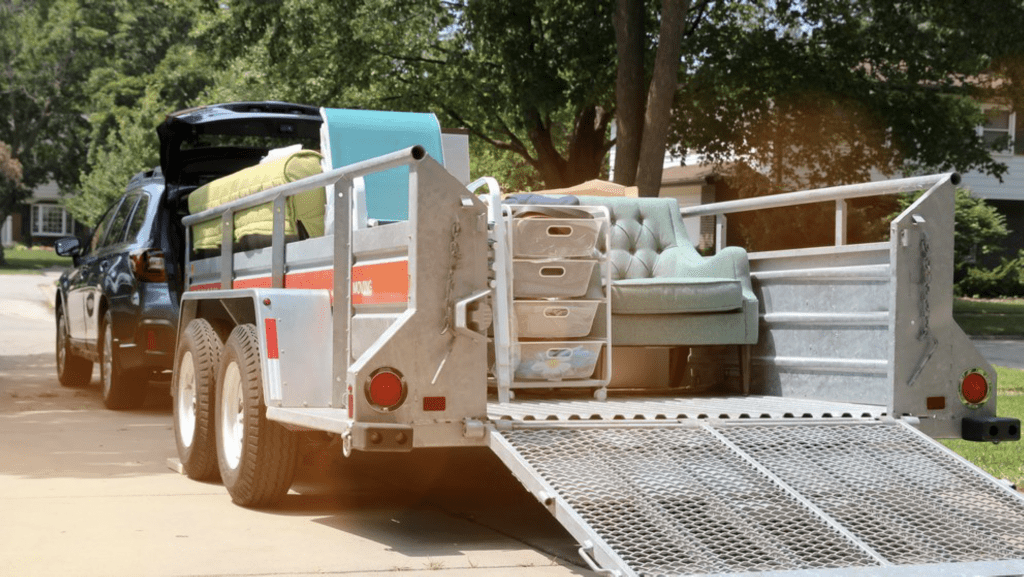
Your personal auto policy may insure your liability for damage or injury to others even if it’s caused by a trailer you’re towing. Say you overcorrect and fishtail, banging your trailer into another vehicle. Or, imagine you crunch someone’s bumper with the corner of your trailer while parking. Both would be insured under your personal auto policy insofar as the damages to other people’s property.
The damage to your trailer, however, would not be covered by your personal auto insurance. For that, you’ll need utility trailer insurance. It can be written to cover collision damage, noncollision damage, personal property inside the trailer, and even emergency expenses such as towing, flat tires and overnight lodging if you are far from home.
To cover noncollision losses such as theft, fires, floods or falling trees, you need comprehensive coverage. You can purchase this when you get your utility trailer insurance. Read the details carefully, because there may be exclusions in the policy, or certain perils that are not insured.
Utility trailer insurance can also be written to cover liability. For example, if your trailer comes unhitched and strikes someone or rolls and damages someone’s property, that would be covered under trailer liability. This is a recommended coverage since liability costs can be extreme in some cases and coverage is not that expensive.
If you use your trailer for personal and business purposes, talk to your insurance agent about those circumstances. In some cases, trailers used for business might not be covered under personal auto insurance.
If you routinely attach your utility trailer to a commercial vehicle you own, consider commercial utility trailer insurance. Your state may even require it. Many personal auto policies exclude liability coverage for business-use incidents. Business use means any income-generating or commercial activity, such as trailering equipment to job sites or trailering livestock for sale.
A few notes on trailer safety
While insurance is a great way to recover from an accident or disaster, it’s best to prevent accidents in the first place.
Load correctly: Follow the 60:40 rule. Place 60% of your cargo’s weight nearest the tow vehicle to prevent fishtailing. And keep the weight as low as possible to prevent tip-overs.
Use the right hitch: Hitches come in different sizes and strengths depending on the weight of the load and the style of the trailer. Using the wrong hitch can result in trailer escapes. And remember to attach the safety chains.
Check all connections: To avoid collisions, make sure your trailer lights are working.
Drive gently: Overcorrections, short stops and taking corners too fast are primary causes of trailering accidents.
Hook up trailer brakes: If your utility trailer is heavy or you’re hauling something heavy, your vehicle brakes may need some help. You can install a trailer brake system and hook it up as needed. This will give you the braking force you need to stop in time.
Use chocks: When parking your trailer, put wedges under the wheels to prevent rolling. Do this even when you aren’t on a hill.
Secure when not in use: Like other valuable possessions, trailers may entice thieves. If you can’t keep your trailer in a locked garage, consider wheel locks and a hitch lock that covers the safety chains.
With the right insurance and your own efforts to prevent accidents and theft, you can trailer safely.
